🍊 Juicy oranges: The sunny side of fruit

The most popular citrus fruits . What better way to start the day than with a glass of freshly squeezed orange juice? The scent of oranges alone is tempting. It conjures up sunshine on cool and cold days and is a true mood-booster. You can easily and simply try it yourself here.
If you're feeling down, grab an orange, cut it in half, sniff the peel, and your mood will improve. Adding orange peel to your bathwater also makes for a good-mood bath.
What you should know about oranges
Oranges provide you with a whole lot of vitamin C. They have a great taste, can be juiced, or are a healthy snack. You can prepare oranges in sweet or savory salads, and you can refine many dishes with orange juice or orange segments. The essential oils in the peel make a wonderful oil for aroma lamps, and candied orange peel is also delicious for snacking. There's hardly anything oranges don't go well with.
The origin of the orange

Oranges originated in Asia. They were formerly known as Chinese apples, which led to the name "orange" in our latitudes. According to tradition, orange trees existed in China as early as 3,000 years ago.
The orange is believed to have originated from a cross between a grapefruit and a mandarin orange. From China, oranges spread throughout Asia and then began their journey around the world with sailors and traders. Today, oranges are grown in southern Italy, Spain, Morocco, Greece, Turkey, Australia, New Zealand, and even South America.
When are oranges in season?
Oranges require a warm climate. Since they are cultivated virtually all over the world, the sweet fruits can be purchased in stores year-round. Orange season is always in full swing somewhere in the world.
Oranges rarely grow in our latitudes. They can only be cultivated as potted plants and must be overwintered indoors during the cold season.
The small ornamental oranges are particularly popular here. These grow on small bushes with wonderfully fragrant blossoms and produce small oranges, which are usually inedible.
There are countless varieties of oranges. The most popular are navel oranges, blood oranges, bitter oranges, Valencia oranges, and Jaffa oranges. In total, there are probably more than 400 varieties of oranges. If you travel to Asia, Africa, or South America, you'll discover oranges you've never seen or tasted before.
What do oranges taste like?
It's not so easy to categorize. With more than 400 varieties, it's no wonder that the flavor nuances also vary. Some oranges are sweeter, while others are sour or even bitter. Generally speaking, however, oranges have a very good balance between sweetness and acidity.
Ingredients & Effects - Properties of Oranges
Oranges are packed with vitamin C. Just 100 grams of these tangy fruits cover almost the average adult's entire daily vitamin C requirement. This amount contains only 42 kcal per orange. Oranges are cholesterol-free and contain plenty of potassium, calcium, phosphorus, magnesium, beta-carotene, vitamin E, folic acid, and B-complex vitamins.
As already mentioned, the scent of oranges stimulates our nerves and makes us happy. This scent also has a calming and relaxing effect. If a house smells of oranges, it is perceived as pleasant. The scent of oranges is also often associated with cleanliness.
Blood oranges, in particular, are rich in provitamin A. This vitamin has a positive effect on our eyesight. This beauty vitamin is also very valuable for the skin and a beautiful complexion.
The vitamin C and antioxidants they contain strengthen your immune system and protect your cells. Oranges are also great anti-aging fruits because they protect against free radicals. They also protect against cell damage and strengthen the cardiovascular system.
Oranges are low in calories, making them a perfectly healthy snack. Their sweetness is a hit with those with a sweet tooth. Whether as a snack during a break, in front of the TV, or after a workout, oranges are always perfect.
Orange vs. Blood Orange - What's the Difference?

The blood orange is a cross between a grapefruit and an orange. The most striking difference is, of course, the color of the flesh, which also accounts for its name. The blood orange, and its juice, are captivating with their magical red color.
This color is caused by large temperature differences. The most sought-after growing area for blood oranges is in Sicily, around the volcano Etna. The large temperature fluctuations between day and night produce substances called anthocyanins in blood oranges. These are secondary plant substances that are said to have particularly protective effects on cells.
Fully ripe blood oranges are sweeter and fruitier than regular oranges. Their fragrance is usually a bit more intense. The most popular and well-known blood oranges are the so-called Moro oranges. In our latitudes, these are mainly available in supermarkets between December and March.
How healthy are oranges?

Although oranges are perfectly healthy, some people may be sensitive to their acidity. Those with a sensitive stomach and prone to heartburn should only enjoy oranges in moderation.
Freshly squeezed orange juice is generally better tolerated than ready-made juice from bottles or carton packs. However, this isn't due to the oranges themselves or the acid, but rather to the sugar added to commercially produced juices. Therefore, it's always better to squeeze the juice yourself and freshly. Not only will you tolerate it better, it will also taste many times more intense.
Anyone who has to take beta-blockers for heart disease should consult their doctor before consuming oranges.
The potassium content in oranges can also significantly increase the potassium level in the blood if consumed in excess.
Did you know that oranges can reduce the risk of a heart attack? Potassium is also responsible for this. Oranges can also lower blood pressure. Diabetes can also be reduced if you snack on oranges instead of sweets.
Another fascinating fact is that vitamin C boosts the body's own collagen production. This makes oranges especially good for your skin. Oranges also boost wound healing and firm tissue.
Oranges are highly recommended, especially for serious illnesses like cancer. They're not a cure, of course, but they support them with their healthy ingredients. If you eat oranges regularly, you don't really need to take additional vitamin C tablets. Nature provides everything your body needs.
The nutritional values of oranges per 100 grams
100 grams of oranges contain:
|
85.9 g water 1 g protein 0.2 g fat Zero cholesterol 8.3 g carbohydrates 1.6 g fiber 177 mg potassium 42 mg calcium 22 mg phosphorus |
15 mg magnesium 45 mg vitamin C 45 μg beta-carotene 0.3 mg vitamin E 30 μg folic acid 0.08 mg vitamin B1 0.04 mg vitamin B2 0.04 mg vitamin B2 |
Special: Orange juice

Orange juice is the perfect way to start the day. Do yourself a favor and squeeze a few oranges in the morning. Freshly squeezed orange juice for breakfast can definitely compete with a champagne breakfast. If you're short on time in the morning, you can prepare the juice the night before and store it in the fridge. If you often get slumped in the morning or afternoon at work, take a freshly squeezed juice with you. You'll see, this heavenly sweet juice will lift you out of your slump in no time.
Nutrilovers | #KnowWhat'sInside
Grapefruits
▷ The right citrus press - 10 points you should definitely consider when buying!
Bestsellers from Nutrilovers
Testimonials
What customers say about our customer service.
Frequently Asked Questions
Questions & Answers
Is "Nutrilovers" a German brand?
Yes - Nutrilovers is a German brand and company from Munich.
Our team consists of true Nutrilovers.
We love healthy eating because our well-being is our top priority.
Since 2015, we have been supporting people on their conscious path to life with a healthy diet every day.
How can I order and what is the delivery time?
You can easily order from us online here in our shop.
To do so, select your products and proceed to checkout. Once we receive your order, we'll work quickly to ensure your order is in your hands within 1-2 business days.
Can I return my orders if I don't like them?
Yes - you have a risk-free 30-day return policy.
Simply send us an email to mailme@nutrilovers.de , keyword: “Return” with your name, order number and address.
You can then drop off the package at any Deutsche Post or DHL service point.
The return address:
SW Commerce c/o Subke GmbH,
Lüner Rennbahn 26, 21339 Lüneburg,
Germany
Detailed information on thecancellation policy can be foundhere
What payment methods are available?
You can choose from different payment providers:
- credit card
- PayPal
- Skrill
- Payment via SOFORT transfer
- Invoice with Klarna
- Installment purchase with Klarna
- Google Pay
- Apple Pay
- Shop Pay
Is there a minimum order value?
There's no minimum order value at Nutrilovers. However, you'll receive free shipping within Germany for orders over EUR 99.00.
Does Nutrilovers offer replacement parts?
Yes , we usually have all
Spare parts in stock and if not, we can
Simply contact us via our
Contact form,
and tell us which Nutrilovers product you own and
which spare part you need.
How long is the warranty and guarantee valid?
We provide a 24-month warranty on new devices and a 12-month warranty on used devices.
Months.
In addition to the legally required 2-year warranty, Nutrilovers offers a 3-year warranty on the motor. (You can find the corresponding warranty terms and conditions here .)
If anything happens, we are available at any time and will take care of it - even after the statutory warranty period has expired.
Does Nutrilovers also help with questions and problems after the purchase?
Always! Simply contact us via our support center and we'll get back to you within 24 hours on weekdays.




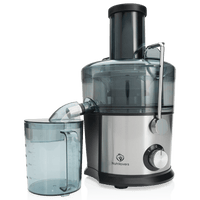
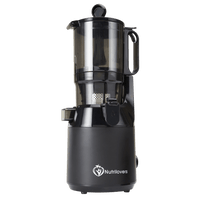










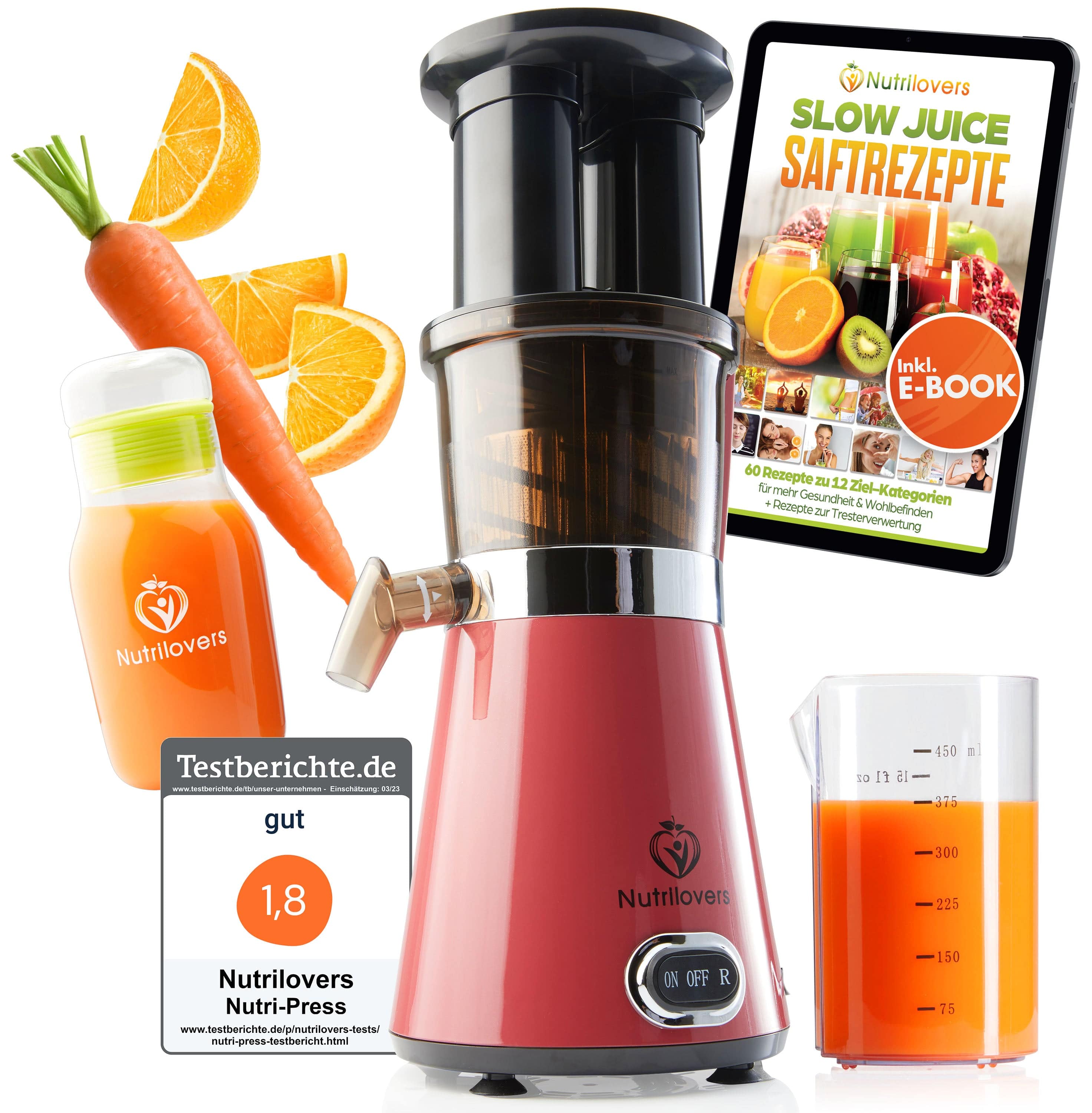
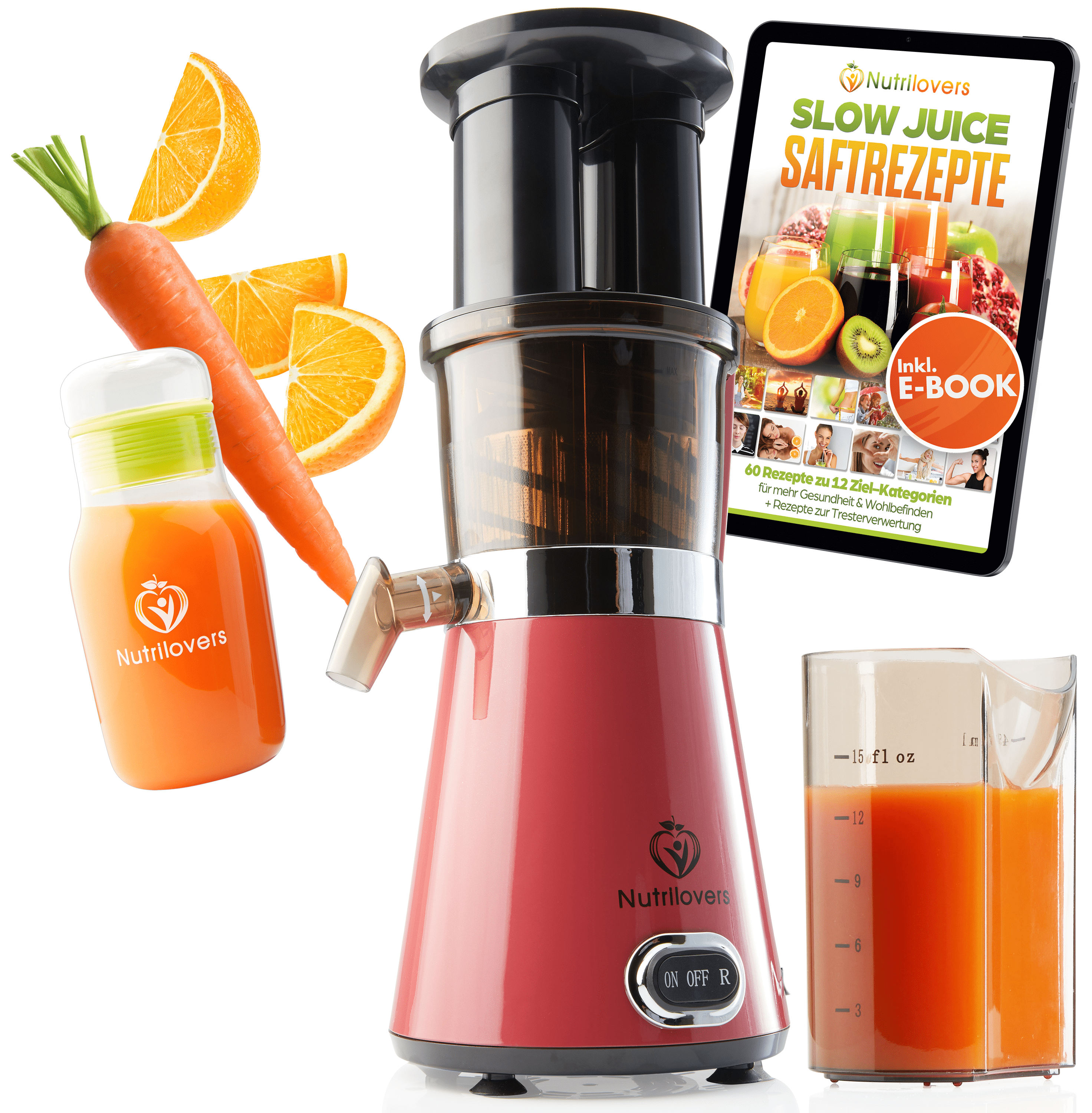
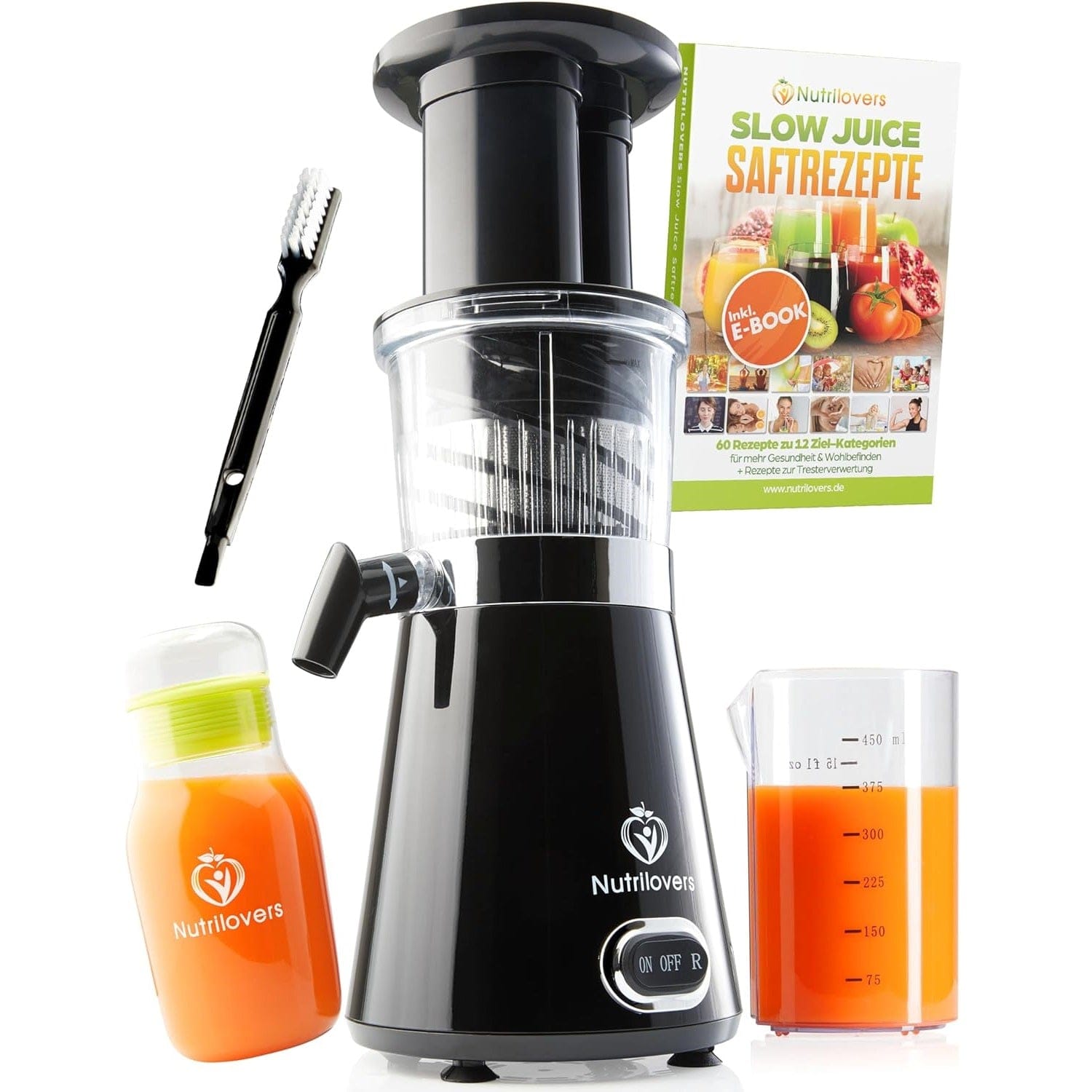

![Nutrilovers Standmixer NUTRI-BLENDER MAX Hochleistungsmixer Standmixer [2000W] - 100% BPA-frei WissenWasDrinIst](http://www.nutrilovers.de/cdn/shop/files/nutrilovers-wissenwasdrinist-standmixer-nutri-blender-max-hochleistungsmixer-standmixer-2000w-100-bpa-frei-kuechengeraete-haushaltsgeraete-wissenwasdrinist-50755820486988.jpg?v=1715435650&width=3000)
![Nutrilovers Standmixer NUTRI-BLENDER MAX Hochleistungsmixer Standmixer [2000W] - 100% BPA-frei WissenWasDrinIst](http://www.nutrilovers.de/cdn/shop/products/nutrilovers-wissenwasdrinist-standmixer-nutri-blender-max-hochleistungsmixer-standmixer-2000w-100-bpa-frei-kuechengeraete-haushaltsgeraete-wissenwasdrinist-29516468027529.jpg?v=1692879160&width=3000)










